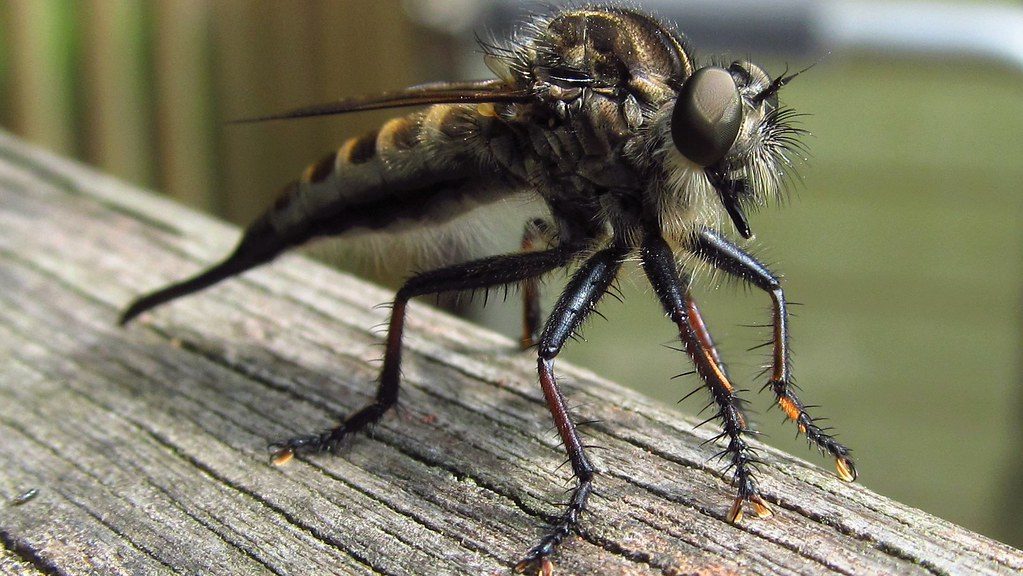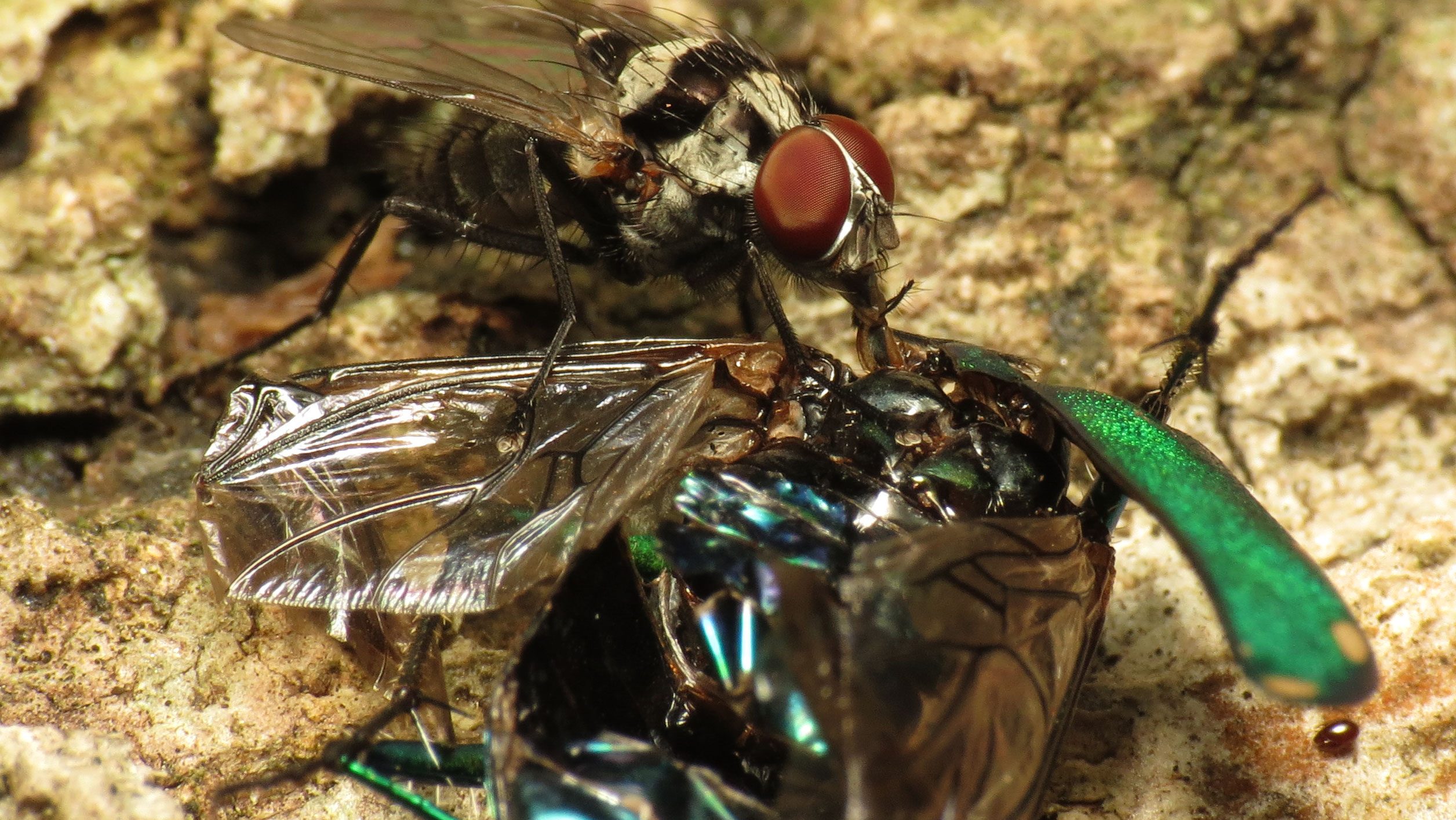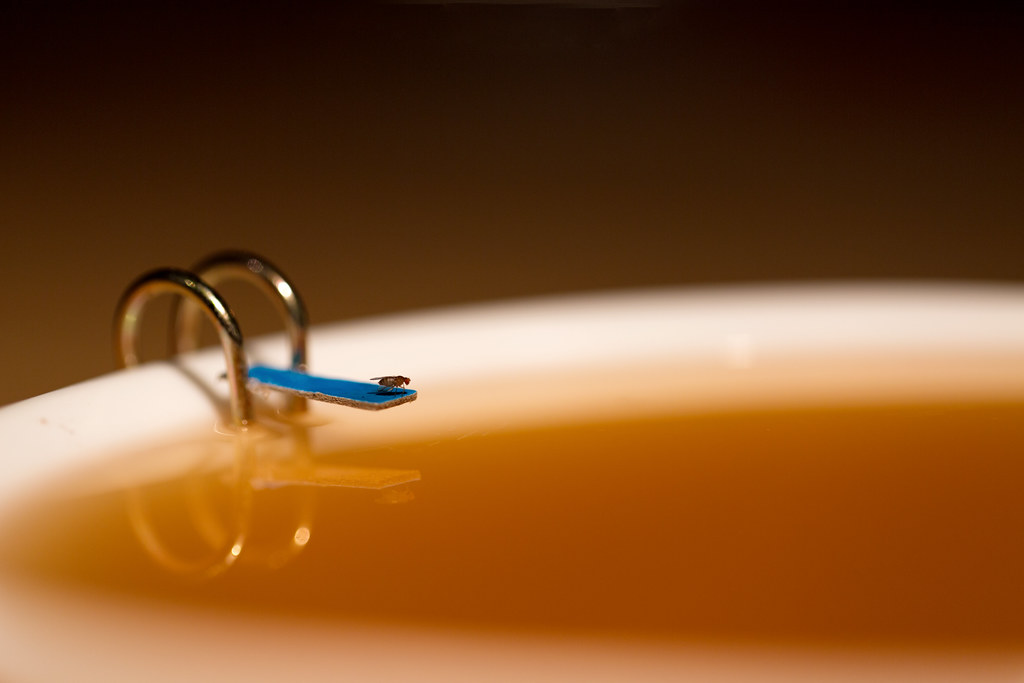Key Takeaways
- Flies spread bacteria and diseases through contact.
- House flies, fruit flies, and drain flies pose health risks.
- Prevent flies by eliminating food sources and sealing entry points.
- Natural repellents and fly traps can help control infestations.
- Severe infestations may require professional pest control.
 Flies are a common household nuisance, often seen buzzing around kitchens, garbage bins, and outdoor gatherings. While they may seem harmless, are flies actually dangerous to have in your home? The short answer is yes—flies pose health risks by spreading bacteria and diseases.
This detailed guide will explore:
Flies are a common household nuisance, often seen buzzing around kitchens, garbage bins, and outdoor gatherings. While they may seem harmless, are flies actually dangerous to have in your home? The short answer is yes—flies pose health risks by spreading bacteria and diseases.
This detailed guide will explore:
Things we have Covered
-
The health dangers associated with flies
-
The types of flies that pose the biggest risk
-
How flies spread diseases
-
Effective methods to prevent and eliminate flies in your home
How Dangerous Are Flies? The Health Risks They Pose
Flies are not just annoying or irritating pests; they can be dangerous disease carriers. Unlike mosquitoes, which transmit diseases through their bites, flies spread infections through contaminated body parts, saliva, vomit, and feces.Health Risks of Flies
-
Flies Carry Harmful Bacteria and Viruses: Flies pick up pathogens from filthy environments such as garbage, feces, decaying food, and animal waste. When they land on food or kitchen surfaces, they transfer these germs.
Diseases Spread by Flies
-
Food poisoning (Salmonella & E. coli) – Causes stomach cramps, diarrhea, and vomiting.
-
Cholera & Dysentery – Spread through contaminated food and water, leading to dehydration.
-
Tuberculosis – A bacterial infection that affects the lungs.
-
Typhoid fever – Causes prolonged fever, weakness, and intestinal issues.
-
Conjunctivitis (Pink Eye) – Flies can carry bacteria that cause eye infections.
Flies Multiply Rapidly, Increasing Contamination Risks
A single fly can lay up to 500 eggs in its lifetime, meaning a small fly problem can quickly turn into an infestation. Fly larvae (maggots) feed on decaying organic matter, making trash cans, compost bins, and pet waste prime breeding grounds. If flies are allowed to breed in or around your home, you could have hundreds of flies contaminating your living space in just a few weeks.

Not getting a solution?
Get your free pest control estimate today!Common Types of Flies & Their Risks in the U.S.
-
House Flies (Musca domestica): The most common fly in U.S. homes, breeding in garbage, rotting food, and animal waste. Spreads E. coli, Salmonella, and other bacteria.
-
Fruit Flies: Found around ripening fruit, sugary drinks, and fermenting food. Can carry yeast, mold, and bacteria, accelerating food spoilage.
-
Blow Flies (Green or Blue Bottle Flies): Larger metallic-green or blue flies that lay eggs on dead animals and rotting meat. Can carry pathogens that cause food poisoning.
-
Drain Flies: Breed in sink drains, sewer lines, and standing water. Carry bacteria from drain sludge but don’t directly harm humans.
-
Horse Flies & Deer Flies: Painful biting flies that can transmit tularemia (“rabbit fever”). Found in rural areas, near water, or in wooded regions.
How to Prevent Flies in Your Home

Kitchen & Trash Maintenance
-
Store food in sealed and airtight containers.
-
Take out the trash frequently and use tightly sealed garbage bins.
-
Clean kitchen surfaces, spills, and dirty dishes promptly.
-
Cover compost bins and clean them regularly.
Water Control & Drain Cleaning
-
Fix leaky pipes and faucets to reduce moisture.
-
Clean sink drains and garbage disposals to remove fly breeding areas.
-
Avoid leaving damp towels, mops, or sponges in the open.
Blocking Fly Entry
-
Install window and door screens to keep flies out.
-
Seal cracks and gaps around doors and windows.
-
Use weather stripping to close small openings that flies can slip through.
Natural Fly Deterrents
-
Apple cider vinegar traps: Attract and drown fruit flies.
-
Essential oils (peppermint, eucalyptus, or citronella): Repel flies naturally.
-
Cloves and lemon slices: A natural deterrent for house flies.
-
Diatomaceous earth: Sprinkled in garbage areas to kill larvae.
Fly Trap Methods
-
Use sticky fly traps near problem areas.
-
Install UV light fly traps in garages and kitchens.
-
Try homemade bottle traps with sugar water or fermented bait.





